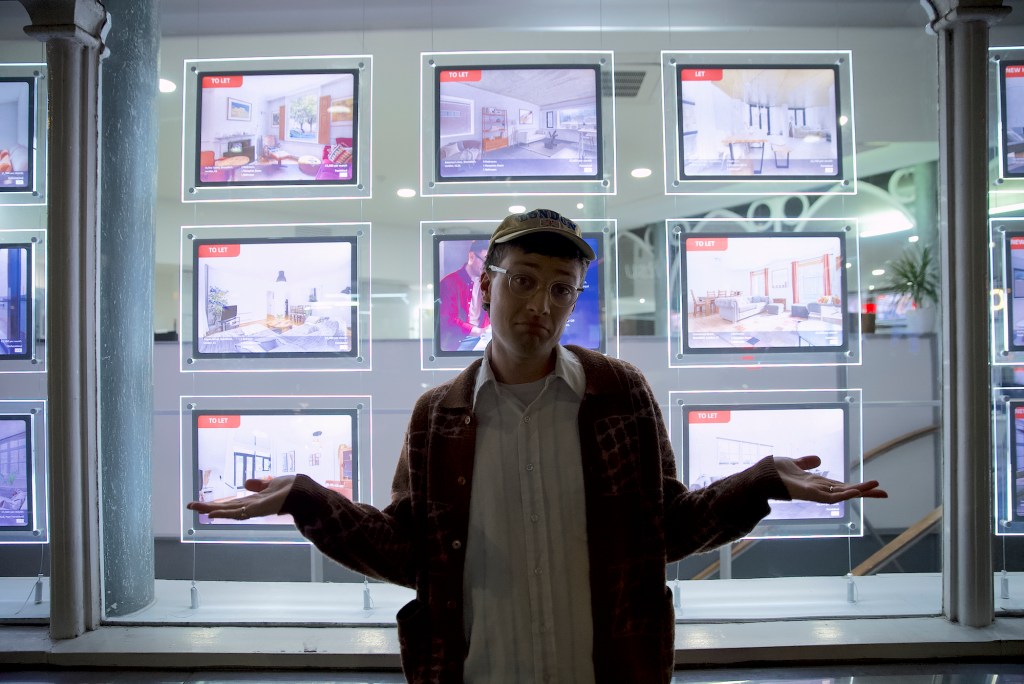When it comes to dabbling in the world of psychedelic drugs, there are a few key rules to keep in mind to ensure a safe experience: set, setting, dosage, and purity.
That’s because while taking mind-altering substances can be intense, euphoric and enlightening, it can also often turn into a frightening or unpleasant experience – or a “bad trip.” A bad trip comes out of taking too much of a substance, mixing drugs, not being emotionally and physically prepared for the trip, not hydrating enough or simply feeling overwhelmed by people around. As a result, the user can slip into a frightening loop, where they may unearth trauma or feel overwhelmed, which can be dangerous when experienced without proper support. This is why music fests – the bedrock of psychedelic drug-taking – are now employing “trip sitters” to make sure people voyaging don’t end up on bad trips. Yes, that’s a real job. And Khalid Surma is one such professional trip sitter.
Videos by VICE
Surma, 32, lives in India’s capital New Delhi and works as an operational manager with a travel agency as he moonlights as a trip sitter at music fests. He describes this role as “emotional first-aid.”

“We follow a harm reduction model called RAPID that stands for reflective listening, assessment of needs, prioritisation, intervention, and disposition to understand what people need when they find themselves in a difficult situation,” Surma told VICE.
Since 2015, Surma has been part of a volunteer network created by TATVA, an emotional well-being and mental health organisation that collaborates with music festivals to set up harm reduction zones. These zones offer a wellness area where those feeling overwhelmed or experiencing a bad trip can come to chill out and seek guidance.

Surma leads a team of 15 volunteers who work alongside medical professionals and psychologists to offer support and guidance to those who need it. With six years of experience as a professional trip sitter, Surma has trained with the Johns Hopkins Bloomberg School of Public Health and the National Harm Reduction Training Coalition to understand the nuances of psychological first-aid. He also offers video call services for people who want to do one-on-one sessions while experiencing a bad trip.
“The first aspect of being a trip sitter is to establish a conversation with the person going through a difficult experience, understand what they have taken, and identify what they need to make sure they stay physically safe, whether they’re going through psychosis or paranoia,” he said. “Since these substances are illegal in India, people are often scared to tell us about what drugs they have taken, especially since most music festivals will simply throw them out if they catch them.”
Though drugs like LSD, cocaine, MDMA and psilocybin mushrooms are illegal in India, harm reduction setups are a way to educate festival goers on taking substances safely and responsibly. However, Surma pointed out, the illegality of the substances as well as the guilt and shame around them can be challenging to overcome.
“I remember at a festival that takes place in a palace on the outskirts of the desert in northern India, there was a couple who decided to trip together on LSD. But the wife began having a bad experience. She became paranoid and felt that people around her were upset or angry with her. Their first response was to call their doctor and tell him she had taken acid. He responded by saying she should take an antacid in that case.”
According to Surma, cases like these highlight the lack of understanding around taking substances in Indian society. “Another time, a group of doctors took what they thought was LSD, but then began experiencing physical symptoms and paranoia. Even in this case, it was difficult to engage with them because they came from a medical background and weren’t open to our approach.”
While a key aspect of Surma’s role is about assessing whether festival goers need medical help, it is also largely about establishing trust and offering objective companionship.
“We often notice that on the last day of the festival, people tend to take higher dosages to finish their supply, even though they have to travel or go to work the next day. They then feel the pressure, and go into a bad trip because they feel their trip is an endless loop that is never going to end. In such cases, I usually spend several hours just sitting with them and assuring them that the trip is temporary and will come to an end.”
Surma recalled his most intense experience as a trip sitter in a 2015 music fest. “A festival goer who had a history of mood disorder reacted pretty severely to the substance they had taken and even physically injured themselves while under the influence. They felt confused and paranoid and ran outside the festival limits into a neighbouring residential area.”
When Surma was alerted to this crisis, his first step was to bring the panicked person to a safe space, and look for a trustworthy ally who could help him establish trust as a trip sitter. “I spent 12 hours just listening to him and trying to understand what he was going through, how he was feeling, and what he remembered. He was unable to sleep because he was tripping and that made him feel even worse. As the hours passed and his trip began to wear down, he realised that I was there to protect him and started to feel more safe.”
In another instance, Surma received a call from a festival management team about a man who was harassing other revellers. “This guy had taken an unknown amount of LSD and began talking about the oneness in the world,” he said. “The problem was that he was alone and wanted to engage with people he didn’t know. But that angered them. I sat with him for six hours as he told me about how he was hallucinating [and seeing] transitioning colours in the sky. He just needed someone to be with him and listen to him to make him feel safe.”
A major part of being a trip sitter, Surma pointed out, is simply making people feel heard and supported. However, in cases where the person doesn’t feel like talking, Surma directs the trippers to a tent in the wellness area where they can express themselves creatively by painting or playing with clay.
For Surma, knowing the right things to do or say comes instinctively. “It can be tricky because if we say the wrong thing at that time, it can easily trigger people and make the situation worse. What we try to figure out is where they’re at emotionally, what they’re feeling, what their thoughts are, and let them only guide us.” He explained that instead of trying to mystically guide people to a more meaningful experience, his basic principle as a trip sitter is to minimise the harm.
“People often put pressure on a substance to resolve an issue or do it because they have FOMO. But as a trip sitter, our job is to understand each individual’s experience without bringing our personal opinion or judgement into it.”
In his six years on the job, Surma found that the biggest challenge to his profession was that the illegal status of the drugs made it hard to determine the purity of what a person had taken. “Since we can’t legally test these substances, we don’t know what they may be laced with, which makes it harder to determine the course of action needed,” he said.
He has since learned how to develop different protocols for different experiences, even as the basic principles remain the same. “To ensure a safe trip, choosing the right space or environment is important. It should ideally be accessible to nature because busy spaces can be triggering for some.” Next: an emotional check-in. “The person taking the substance should also see where they are emotionally and what they are looking for. We’ve had cases where people have taken drugs after someone close to them passed away, and these emotions come up during the trip and make it a difficult experience.” He added that all trips must be accompanied by pre and post care, such as ensuring the user has gotten enough sleep, food, and is wearing comfortable clothes.
“They should also easily be able to access food and shelter or have a good understanding of the space they are in for a safe experience. We also recommend a buddy system, where the user should make a pact with a friend to constantly check up on each other.”
Follow Shamani on Instagram and Twitter.
The views and opinions expressed in this article are solely that of the interviewee. VICE neither endorses nor encourages consumption of narcotics/psychotropic substances.
More
From VICE
-

Collage by VICE -

The author lurks outside an estate agents, Voigt-Kampff machine just out of shot. Photo by Zuka George -

Jesus, Mary Magdalene, Judas Iscariot, and some fourth wheel at the Last Supper (All photos by Paige Taylor White) -

Getty Images



